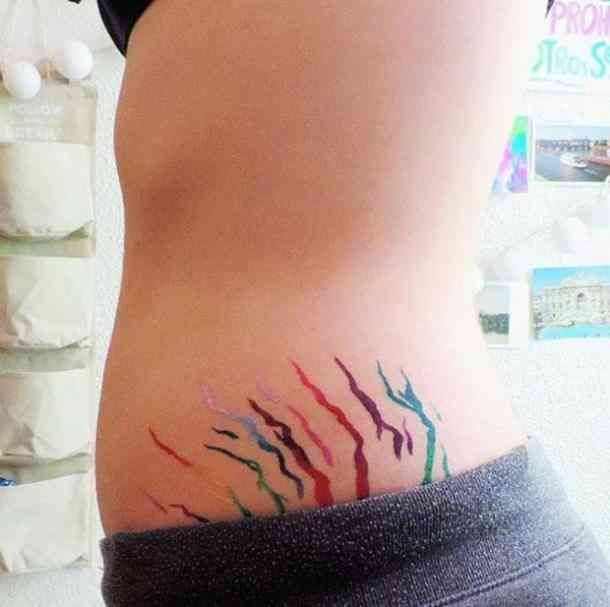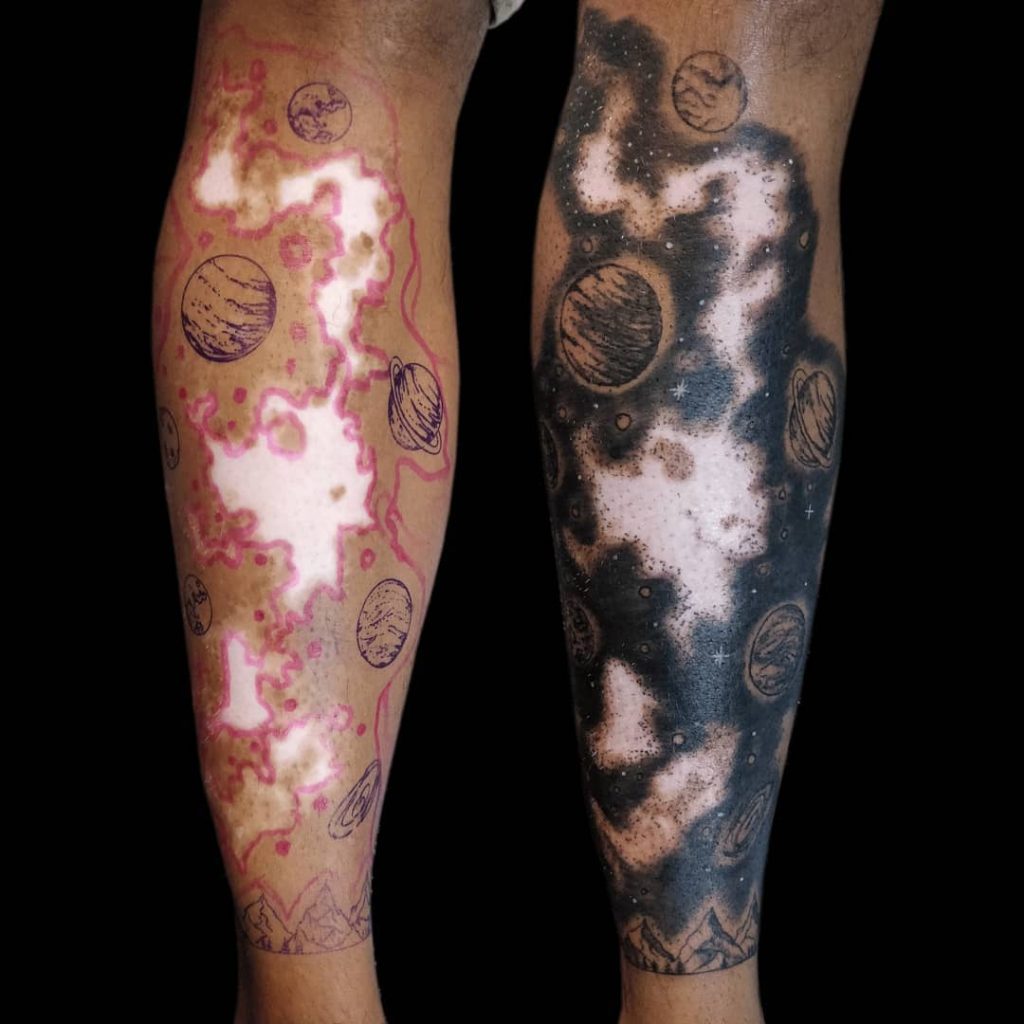Can medical assistants have tattoos?- the answer is yes!
Tattoos are more popular and mainstream than ever in recent years, with more than half of all Americans under the age of 40 sporting them. According to a recent Ipsos poll, 30% of Americans have at least one tattoo, with that figure rising to 40% among those aged 18-34. As the popularity of tattoos grows, so do questions and debates about the visibility of tattoos in the workplace.
Additionally, if you enjoy getting tattoos and are one of the prominent individuals who is contributing or about to contribute him/herself to the welfare of society by being a member of the healthcare field including Doctors, medical assistants, or nurses, then getting a tattoo can end up being one of your primary concerns! So, we’ve compiled a few frequently asked questions about tattoo policies in healthcare occupations below. Follow along!
Related: Can You Become a Pilot With Tattoos, Or Not?

Are tattoos okay in the medical field?
We have already answered that you can have a tattoo in the sector of medicine. But, You must be especially cautious in healthcare jobs because your career is dependent on it. Although there is no nationally accepted policy regarding tattoos and piercings in the workplace and getting a tattoo would not disqualify you from working, tattoo policies might differ from hospital to hospital. Some hospitals might allow visible tattoos, some might allow covered ones and some might not even give any permission to have tattoos at all, whether it is visible or non-visible.
How much having a tattoo might affect my career?
A visible tattoo might be seen as a stigma by certain senior medical practitioners, which may later hinder or restrict promotion chances. Despite the fact that the majority of administrators reject the existence of employment discrimination due to having tattoos.
Dr. Katherine E. Palmisano, an internal medicine physician has shared her valuable insight and story on having tattoos on the website named kevinMD.com where verified doctors and other advanced practitioners share their views and tales. She has told that “I have had visible tattoos for nearly two years at this point, and I’ve found it’s allowed me to be more genuine at the bedside.” She also said, sometimes she has to deal with patients who behave negatively as well as there are some other patients too, who feel connected with her because of her tattoo. About her mental peace, she pointed out that she had visible tattoos on her full arm for about two years, allowing her to feel more genuine than ever. According to her, professionalism is all about the behaviors and practices she does as a Dr., and expressing one’s true self is the way of becoming more professional.
Is there any clinic/hospital that has allowed tattoos?
Starting in 2018, The Mayo Clinic -which has always ranked at or near the top of the “Best Hospitals Honor Roll” has allowed its doctors, nurses, and other medical staff to roll up their sleeves and sport their ink.
According to their updated policy about tattoos, they have indicated that “Tattoos may be visible if the images or words do not convey violence, discrimination, profanity or sexually explicit content. Tattoos containing such messages must be covered with bandages, clothing, or cosmetics. Mayo Clinic reserves the right to judge the appearance of visible tattoos.”

Do I need to take any precautions before getting a tattoo?
Getting a tattoo is totally up to you, as it is a personal form of artistic expression, but if you are concerned about how they will affect your career opportunities, you can take some safeguards. The only precaution that you can take is not to have visible tattoos.
If you already are a doctor, getting a tattoo wouldn’t be that much hard, but if you are about to enter the sector, our suggestion would be to keep the tattoo non-visible.
What kind of tattoos are permitted?
Tattoos are generally tolerated at work as long as they are not offensive, unprofessional, or distracting. Most medical institutions allow a small amount of visible body ink that is not offensive, symbolizes hate or represents any superstitions. On the other hand, non-visible tattoos are allowed.
Why are tattoos still frowned upon in the medical field?
Doctors, nurses, and members of management may refrain from having excessive or obvious tattoos for two main reasons: they think it’s unprofessional and reflects poorly on them. Higher management is unconcerned about it, but most patients in the medical office are! Unfortunately, older patients who are unfamiliar with current trends such as tattoos and piercings would be judgmental. Even if you are very accomplished, questions about your competence may persist.
Is the public’s perception of doctors with tattoos changing?
Over the course of several months, more than 900 adult patients were polled (by Emergency Medicine Journal) about how they viewed the doctors’ competency, professionalism, compassion, and ease with communicating depending on having tattoos. Furthermore, there was no difference in the care they received between clearly inked and non-inked clinicians. However, people’s perceptions of doctors’ appearance are changing all the time. A growing number of doctors are becoming aware that doctors should not be assessed based on their appearance; if a doctor can accept and deal with all types of patients, patients should also adapt their perspective, as appearance is interconnected. A doctor feels more liberated with exposed tattoos. Today, many doctors readily share photos of themselves on Instagram showing off their obvious tattoos and sharing their stories. Here are a few instances:


Final Thoughts
There is nothing wrong with doctors or nurses getting tattoos because it does not indicate one’s aptitude or proficiency. In general, hospitals want doctors to cover up any tattoos they have while at work for sanitary reasons. Tattoos above the neckline or beyond the wrist are normally prohibited, as most patients would not want their surgeon’s hands or face inked!
However, Tattoos are no longer considered a sign of a bad or criminal background, and several hospitals and clinics allow doctors and other medical professionals to have visible tattoos. There are still hospitals where medical professionals, including physicians, are prohibited from having any tattoos, not even covered ones.

I am an expert in writing content as well including body art, piercing, beauty, and more.




